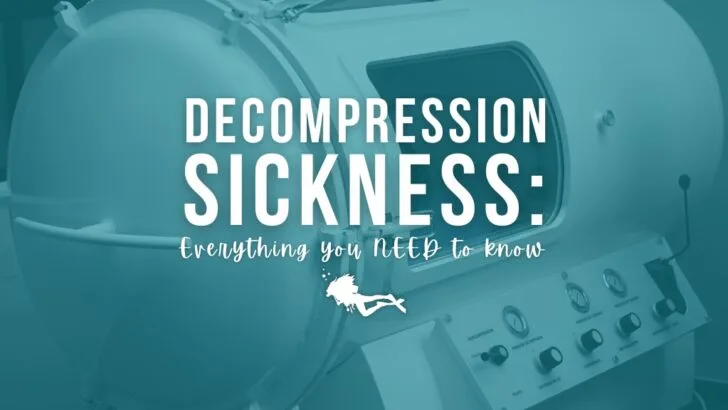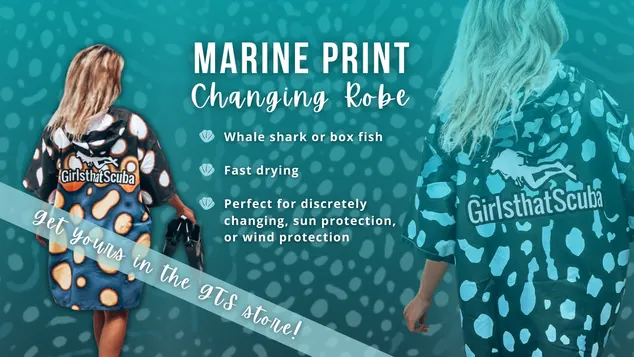If you’re a certified scuba diver, you’ll have learned about decompression sickness (DCS) during your training. Regardless of how safely and conservatively we scuba dive, there’s always a chance that DCS could happen.
Contrary to common belief, decompression sickness doesn’t just happen due to reckless diving. On dive trips with multiple daily dives across repetitive days, such as liveaboard diving, it’s more common than you’d think.
For these reasons, we believe it’s important to empower divers with information on DCS, such as how to recognise decompression sickness symptoms, what to do if you suspect you have DCS, and how to prevent decompression sickness. This guide will cover everything you need to know about decompression sickness.
What is decompression sickness?
When we scuba dive, nitrogen is absorbed into our body tissues due to the increased water pressure around us. Decompression sickness, also known as “the bends”, can happen when this nitrogen comes out of solution rapidly due to a decrease in pressure, such as when we ascend from a dive.
This causes bubbles to form in bodily tissues, which can result in subtle, minor symptoms, or more severe neurological impacts.
How can you tell if you have decompression sickness?
Symptoms of DCS usually appear within 15 minutes, but may occur up to 12 hours after surfacing. Divers Alert Network (DAN) say that “denial is arguably the worst ‘symptom’ of DCS”, as divers often put their symptoms down to other causes. They may blame “overexertion, heavy lifting or even a tight wetsuit”.
Any of the following symptoms could mean that a diver has DCS.
Most common symptoms
DAN identifies these as the most common manifestations of DCS:
- Pain in joints, arms, legs, or torso
- Numbness, tingling, muscle weakness, or paralysis
- Difficulty urinating
Mild DCS symptoms
Other mild symptoms of DCS may include:
- Skin itch
- Blotchy rash (sometimes referred to as “skin bends”)
- Breast soreness
- Dizziness, vertigo
- Ringing in ears
- Shortness of breath
Severe DCS symptoms
The following are severe symptoms of DCS, which require immediate medical attention:
- Confusion, strange behaviour, amnesia
- Tremors
- Staggering
- Coughing up blood
- Unconsciousness or collapse
What do you do if you think you have DCS?
If you’re experiencing any of these symptoms of decompression sickness, you should seek help immediately. As mentioned, it’s incredibly common to downplay DCS symptoms and for divers to put them down to other causes. However, it’s important to get treated as soon as possible.
In the case of severe DCS symptoms, seek emergency medical assistance immediately.
For the milder symptoms, if you’re still close to your dive operator they will be able to help in the first instance. If you’re on a liveaboard, find the Cruise Director for assistance. The dive operator will have emergency oxygen available, which is the first aid step for suspected DCS. If you’ve travelled away from your dive operator, head to the nearest emergency medical care.
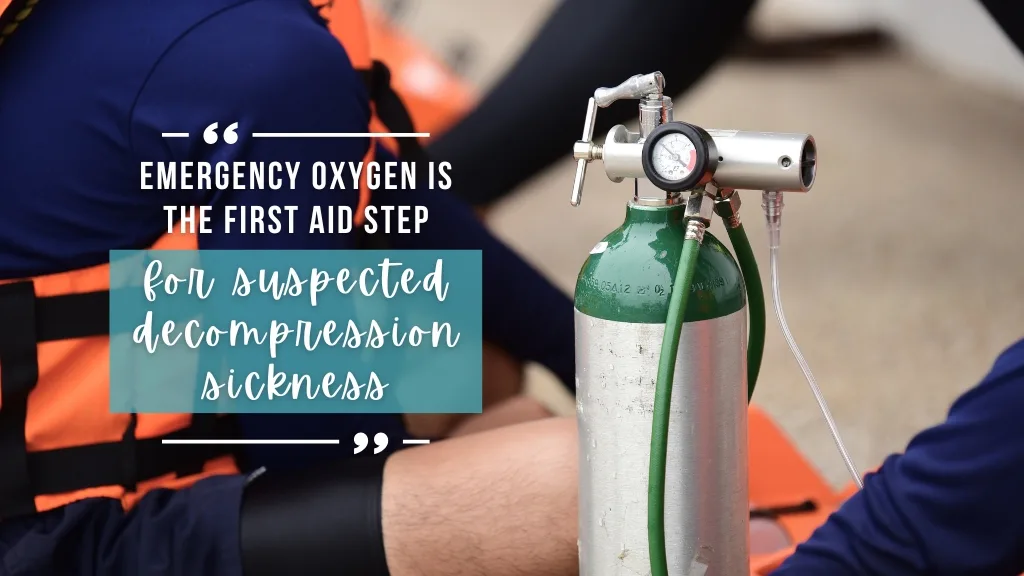
You can also contact DAN, who have dive physicians available by phone 24/7. Their dive medics can offer advice and liaise with any local medical services. They can also help to arrange treatment in a recompression chamber.
When diving in a new destination, we would always recommend looking up the nearest chamber, or asking your dive operator for the location. It’s helpful to be prepared with this information in the unlikely event you might need it.
Medical evacuation and recompression treatment can be costly. For this reason, we highly recommend always travelling with dive insurance and travel insurance. This should cover you for dive medical treatment, as well as any travel complications (such as missed flights) which may arise from seeking treatment.
How can you prevent decompression sickness?
There are a lot of factors which may contribute to decompression sickness, and our susceptibility can change from day-to-day, and of course, dive-to-dive. We can never truly remove the chance of DCS, and plenty of divers following all the rules still experience “undeserved hits” of decompression sickness. However, here are some actions you can take before, during, and after diving, to try to reduce your risk.
Before and between dives
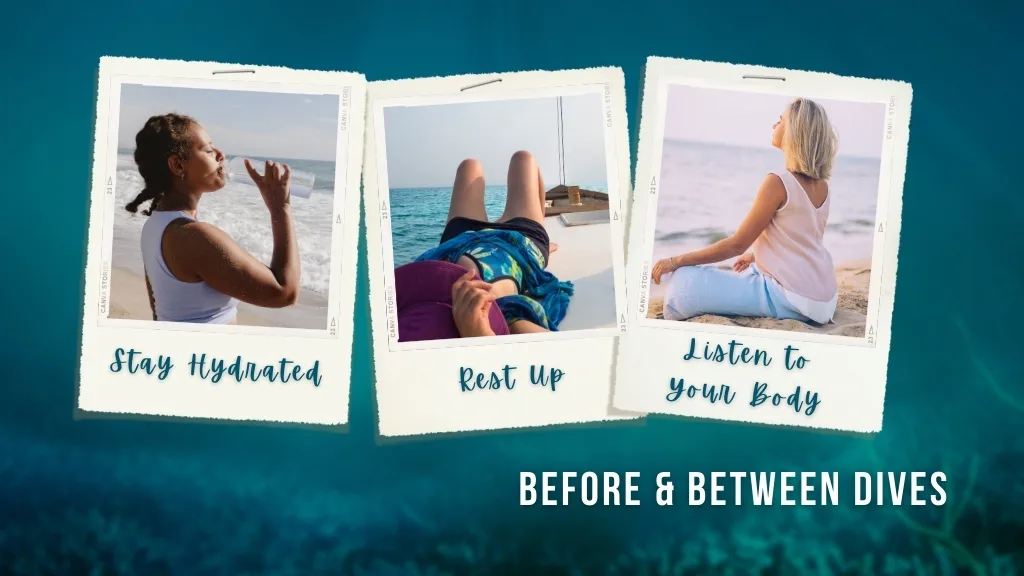
Stay hydrated. Make sure to drink plenty of water. Consider adding electrolytes to boost your hydration.
Rest up. Ensure you’re getting plenty of sleep between dive days, and rest in between dives, too. What a great excuse for a nap on the dive deck!
Listen to your body. There’s no pressure to do every single dive on a trip, so dive the dives you want to, and skip the ones you don’t. If you’re feeling a bit tired, unwell, or dehydrated, take it as your cue to take a rest.
During dives
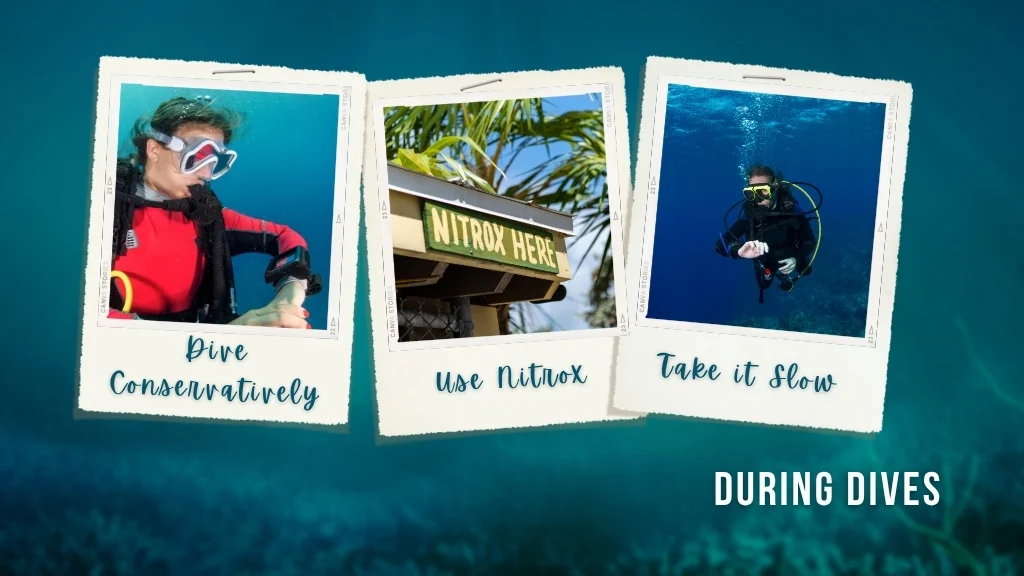
Dive conservatively. Stay well within your computer’s no decompression limit, particularly if diving below 30m (98ft). Consider setting your computer more conservatively for repetitive diving. Make sure to complete your safety stops to allow extra time for nitrogen to off-gas, and consider extending your safety stops to 5 minutes for repetitive diving.
Use Nitrox. If you’re certified to, choosing to dive with Nitrox can reduce your risk of DCS. If you are diving with Nitrox, remember to always analyse your own gas. It’s your responsibility to know what gas you’re diving with and set your computer accordingly.
Take it slow. Don’t over-exert on dives. Any extra activity underwater can increase your risk of DCS. If you’re finding conditions difficult, let your buddy and guide know. Remember, any diver can cancel any dive, at any time, for any reason.
After dives
Warm up slowly. Do not take very hot showers or use hot tubs straight after diving.
Do not exercise. According to DAN, “any exercise […] should be avoided as long as possible after a dive”. You’re on vacation, save the workout for at home!
Save for Later
These images have all of this information condensed into quick, easy advice, which can be saved to your phone or other device for quick help when you can’t get online. Screenshot or click to save for later!
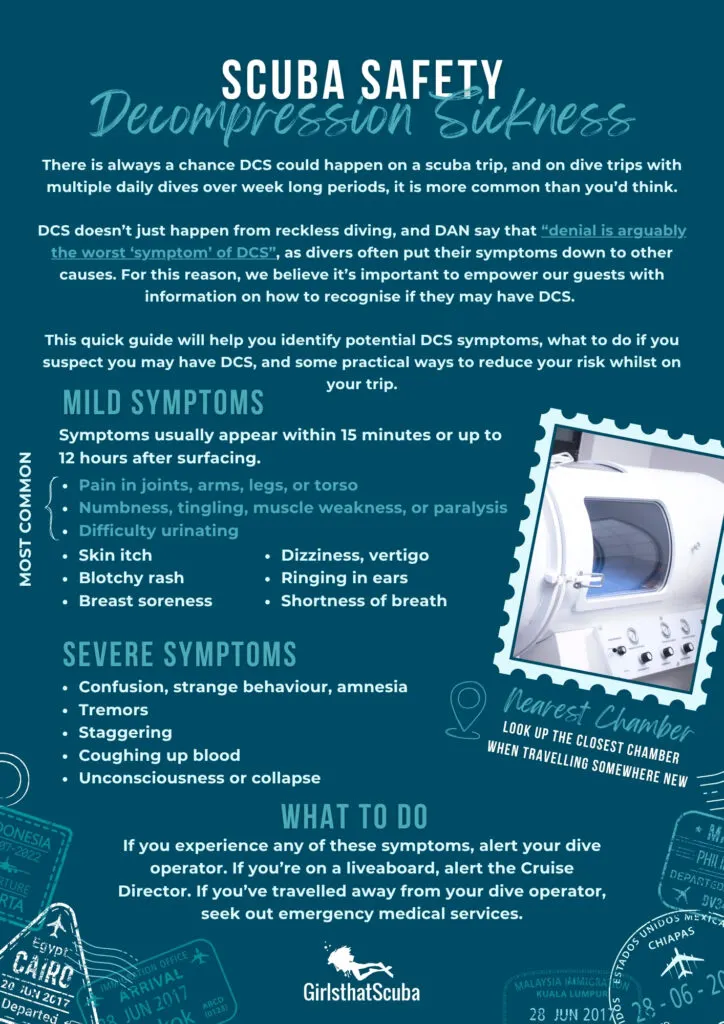
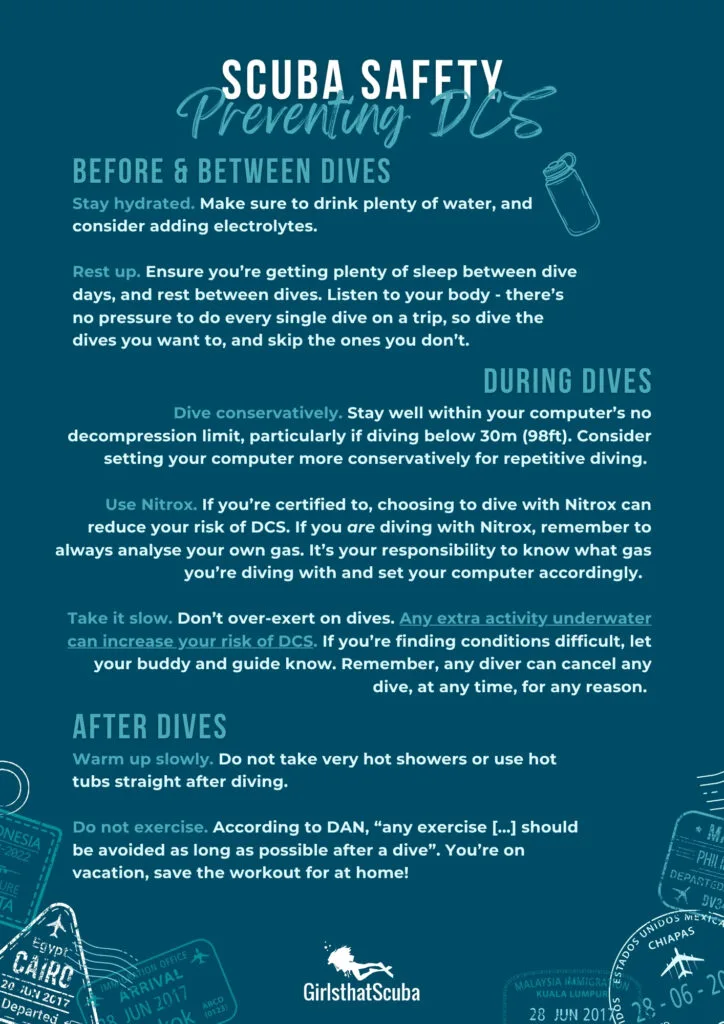
Whilst we all hope it won’t happen to us, being empowered with this information could help you or a fellow diver in an emergency situation. Share this with a scuba buddy, and join us over in the Girls that Scuba Community to share your dive stories!

